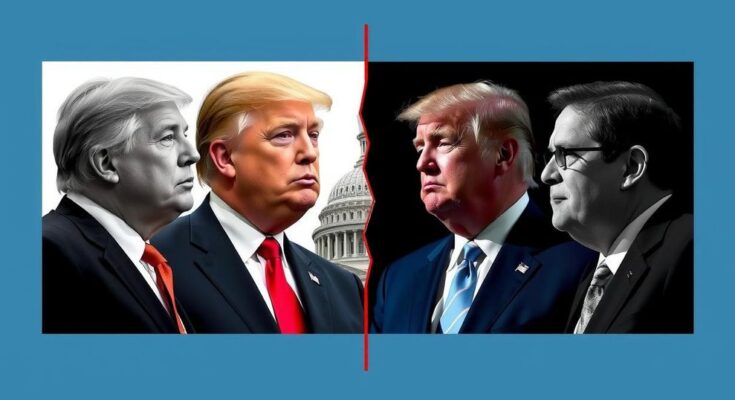Despite the violent January 6 insurrection, 157 members of the 119th Congress, primarily Republicans, propagate election denialism, reflecting the normalization of misinformation in U.S. politics. Other democracies have addressed such threats decisively, yet accountability efforts in the U.S. remain sluggish, allowing the persistence of election deniers in high political offices.
Four years after the January 6 insurrection, the political climate in Congress reveals a concerning continuity of election denialism. Despite the violent attempt to overturn Joe Biden’s election and the stark ramifications in other democracies, 157 members of the newly formed 119th Congress—the majority being Republicans—continue to propagate falsehoods regarding the 2020 electoral results. This persistence highlights a disturbing trend: an alarming 38% of Senate Republicans and over 62% of their House counterparts were complicit in undermining electoral integrity. This includes prominent figures such as Senators Ted Cruz and Rick Scott, as well as the entire Republican House leadership.
Additionally, beyond Congress, election denial is not limited to Washington itself; numerous state officials, including ten of the 27 Republican governors, support these unfounded claims. Comparisons with countries such as South Korea and Brazil, which responded decisively to threats against democracy, spotlight the stark contrast in American accountability measures. In South Korea, rapid political actions were undertaken to uphold democratic principles; meanwhile, Brazil’s swift judicial responses to coup attempts have significantly impacted its political landscape.
In the United States, however, accountability efforts have faltered. Initial attempts, such as Representative Cori Bush’s proposed ethics investigation into Congress members who supported election denial, languished in legislative obscurity. Furthermore, Attorney General Merrick Garland’s tempered, methodical approach to accountability prioritized individual misdemeanors over systemic political transgressions. Despite over 900 convictions related to the Capitol riot, former President Donald Trump’s influence persists, illustrated by his vow to pardon those prosecuted. Thus, the lack of decisive legal repercussions enhances the normalization of election denialism within contemporary American politics, symbolized by the existence of 157 election deniers in Congress as of now.
The political discourse surrounding the January 6, 2021 insurrection reveals a significant challenge to democratic principles in the United States. The insurrection served as both a manifestation of election denial and a critical turning point for American politics. The ongoing presence of individuals in Congress who continue to reject the legitimacy of the 2020 election results signifies a deeper, more entrenched issue. Unlike other nations that have responded swiftly to similar threats, the United States has shown a reluctance to hold leaders accountable, thereby allowing election denialism to flourish.
In summary, four years after the January 6 insurrection, the persistence of 157 election deniers in Congress underscores a troubling normalization of misinformation and election denial within American political culture. This situation is exacerbated by the lack of decisive actions taken by both political and legal frameworks, contrasting sharply with those witnessed in other democracies. The ongoing presence of election deniers suggests a dire need for accountability and a reinvigoration of democratic norms in the United States.
Original Source: zeteo.com




